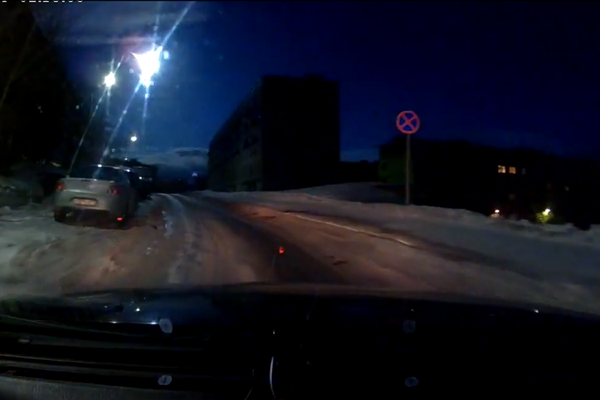All Science
 Neanderthal groups were small, isolated, suggests DNA analysis
Neanderthal groups were small, isolated, suggests DNA analysisAn analysis of Neanderthal genomes suggest that the extinct humans were less genetically diverse than their H. sapiens counterparts, say researchers.
 Big Bang theory skeptics outnumber believers in US, according to poll
Big Bang theory skeptics outnumber believers in US, according to pollBig Bang theory: When considering concepts scientists consider truths, Americans have more skepticism than confidence in global warming, the age of the Earth and evolution, and the Big Bang.
 Scientists produce 'wonder material' graphene with kitchen blender
Scientists produce 'wonder material' graphene with kitchen blenderGraphene, a carbon allotrope renowned for its strength and electrical conductivity, can be produced with a blender and solvent, say researchers.
 Fireball lights up Russian sky
Fireball lights up Russian skyA blazing fireball appeared over the northern Murmansk region of Russia last week. Recorded with dashboard cameras, the explosion evokes the February 2013 meteorite explosion over the city of Chelyabinsk, which injured more than 1,200 people.
 Lyrid meteor shower peaks tonight: How to watch from anywhere
Lyrid meteor shower peaks tonight: How to watch from anywhereLyrid meteor shower 2014: The Lyrid meteor shower runs from April 16-25 this year, and will peak overnight April 21-22. Lyrid meteors tend to be faint, but have long, glowing tails.
 Space station astronauts get a 'Dragon' for Easter
Space station astronauts get a 'Dragon' for EasterAfter a two day trip, a SpaceX cargo mission carrying resupply items including a robotic astronaut's legs, microbes gathered by cheerleaders, and lettuce seedlings arrived at the International Space Station on Sunday.
 John Houbolt made vital contributions to Apollo moon landing
John Houbolt made vital contributions to Apollo moon landingNASA engineer John Houbolt, who passed away last Tuesday, convinced the space agency to develop a module that would carry the Apollo crew to the moon from lunar orbit.
 Could ancient Martian life be preserved in meteor impact glass?
Could ancient Martian life be preserved in meteor impact glass?Bits of organic material have been identified trapped inside rock that has melted and re-solidified following a meteor strike. Could Martian impact glass also show clues of life?
 SpaceX Dragon capsule makes Easter delivery to space station
SpaceX Dragon capsule makes Easter delivery to space stationThe Dragon cargo ship, operated by the private spaceflight company SpaceX, arrived at the International Space Station on Sunday morning
- Florida sinkhole: Massive hole between two homes is plugged
Florida sinkhole: A huge sinkhole opened up and threatened to gobble up two homes in central Florida. But by Sunday, crews had managed to fill the sinkhole.
 Americans optimistic about flying cars, not so much about robot caregivers
Americans optimistic about flying cars, not so much about robot caregiversA Pew survey of 1,000 Americans asked to predict the future showed a lot of optimism but also considerable skepticism about where technology may be leading us.
- Robonaut: A robot assistant for space station astronauts
On Easter Sunday, SpaceX will deliver a pair of legs to 'Robonaut.' This is the next big step in NASA's quest to develop robotic helpers for astronauts. With legs, the 8-foot Robonaut will be able to do chores for the human crew on the International Space Station.
 On fourth try, SpaceX capsule en route to space station
On fourth try, SpaceX capsule en route to space stationThe Dragon capsule is expected to arrive at the International Space Station on Sunday. Friday's launch was the first experiment with a new landing system designed to return the first stage of SpaceX's Falcon 9 rocket to its launch pad.
 Mexico earthquake shakes Acapulco, surrounding area
Mexico earthquake shakes Acapulco, surrounding areaMexico earthquake: A powerful quake struck Mexico's Pacific coast, shaking and cracking buildings in the southwestern state of Guerrero . There have been no reports of fatalities.
 Moon orbiter LADEE crashes triumphantly after 'amazing' mission
Moon orbiter LADEE crashes triumphantly after 'amazing' missionAfter completing all of its goals and then some, NASA's LADEE orbiter took increasingly daring passes, skimming closer and closer to the moon surface, ultimately crashing just days before it would have run out of fuel.
 Ancient soil provides clue to Greenland's green past
Ancient soil provides clue to Greenland's green pastThe 2.7-million-year-old soil in Greenland is remnant of the region's landscape before it was covered with ice sheet, according to a new study.
 SpaceX launch to space station: It's what is coming down that's key
SpaceX launch to space station: It's what is coming down that's keyA SpaceX rocket is bringing 2.5 tons of cargo to the International Space Station, including legs for NASA's Robonaut 2, but a test of the first stage's landing system could be the biggest prize.
 Kepler-186f could be 'Earth's cousin,' say astronomers
Kepler-186f could be 'Earth's cousin,' say astronomersKepler-186f, a planet located about 490 light-years away, is the first Earth-sized planet to be detected inside its star's habitable zone.
 Brazilian bugs' bizarre bawdy bits baffle biologists
Brazilian bugs' bizarre bawdy bits baffle biologistsFour species of a cave-dwelling insect have been found to have sex-reversed genitalia, with the females sporting a penis-like organ and the males lacking one.
 Earth-sized planet discovered: Is our galaxy teeming with habitable worlds?
Earth-sized planet discovered: Is our galaxy teeming with habitable worlds?NASA's Kepler spacecraft has detected an Earth-sized planet orbiting an M dwarf star, scientists announced Thursday. We have some 70 billion M dwarf stars in our galaxy, so this suggests a huge number of potential life-friendly planets.





















